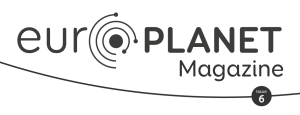Planetary Perspectives: Meet the New Europlanet Society Board
This edition of Planetary Perspectives finds out more about interests, backgrounds and ambitions for the Europlanet Society of the members of the Executive Board elected and taking up new roles in November 2023.
Read article in the fully formatted PDF of the Europlanet Magazine.
How did you get into planetary science?
Leigh Fletcher (University of Leicester, UK), Board Member: I was in the right place at the right time for a PhD position working on Cassini data. Actually, I was a Naval Reserve, doing officer training on a small patrol boat (but sometimes getting to sail on aircraft carriers), and almost signed up before being tempted into a science PhD!
Federica Duras (INAF, Italy), Secretary: After my PhD and postdoc in active black holes, I switched to outreach and education and I started dealing with planetary science. It is an extremely interesting topic and its ‘closeness’, or familiarity, helps to make people fall in love with astronomical science.
Melissa Mirino (University of Padova, Italy), Board Member: I started to collaborate with the Astrophysics Institute INAF-IAPS in Rome when I was an undergraduate and I had to work on my thesis project. At the time, I collaborated with the team who was in charge of interpreting the data from MARSIS, the radar on board the ESA Mars- Express mission. My work was focused on creating a 2D geological model of the deep layers of the North Polar cap of Mars. After that, I fell in love with the topic and, thanks to scholarships and travel grants, I had the opportunity to work and study abroad to dig deeper into other projects related to planetary science.
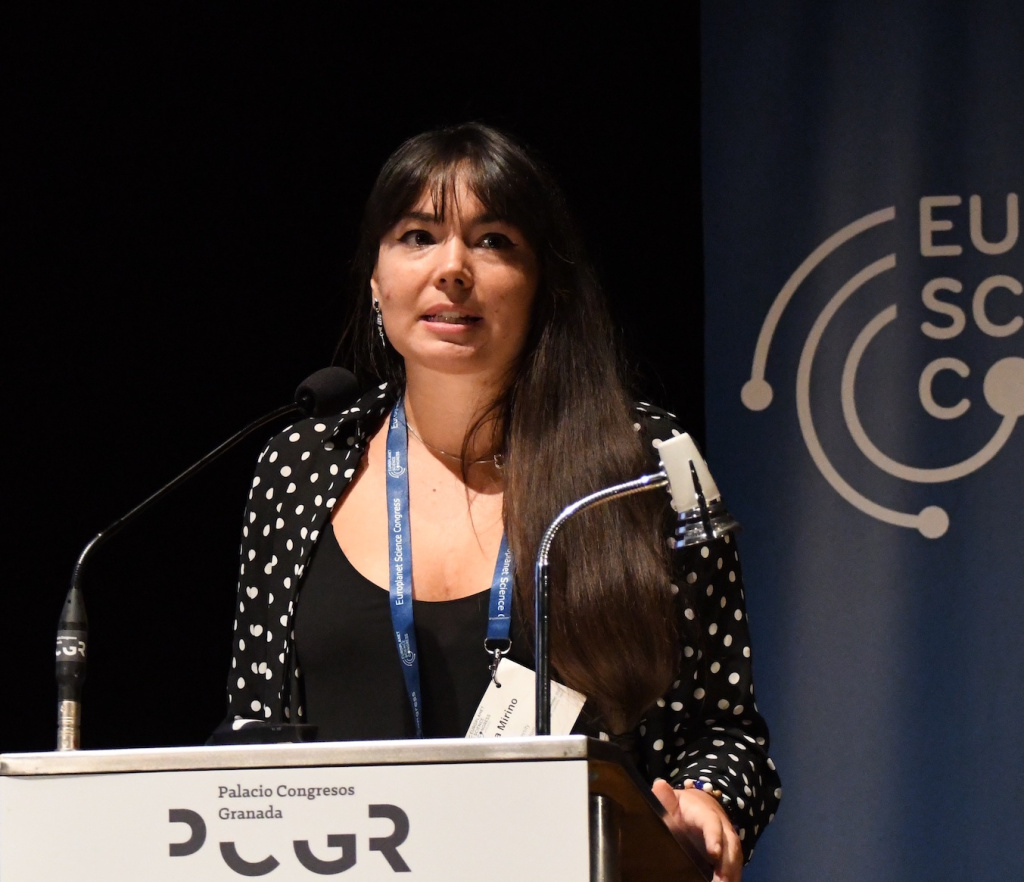
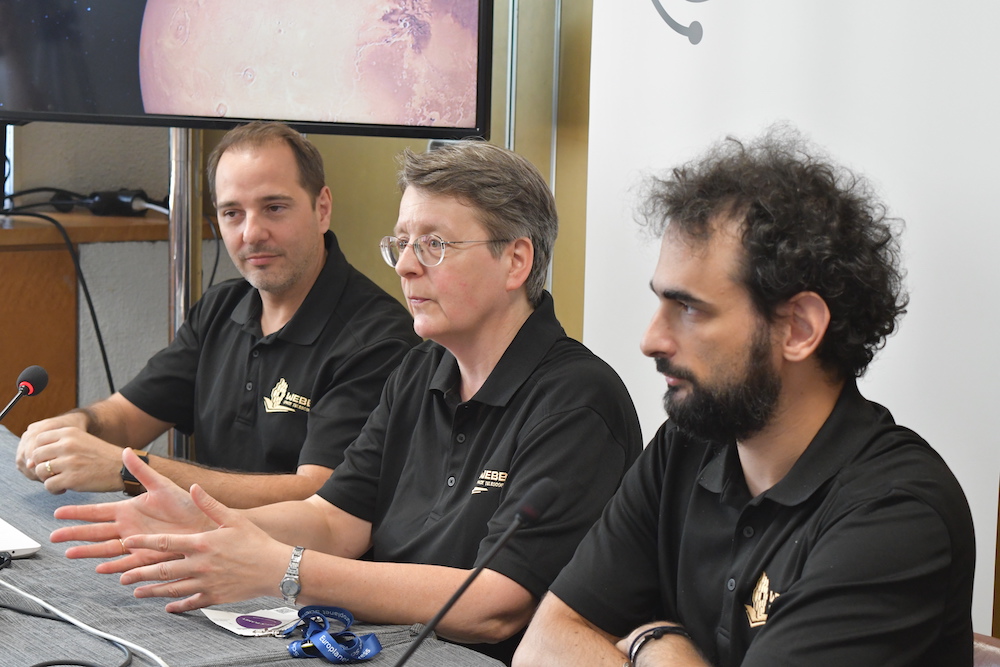
Julia de León (IAC, Spain), Board Member: Well, this is a funny one. I finished my degree and I started to work as an astronomer at the Optical Ground Station (OGS), a 1-m telescope managed by ESA and located at the Teide Observatory in Tenerife, where I am from. I was detecting and following-up space debris! After a couple of years, I started to take advantage of my access to the telescopes and, as I was actually looking at the near-Earth environment, I started observing Near-Earth Asteroids (NEA). I did my thesis on the composition of NEAs… and here I am.
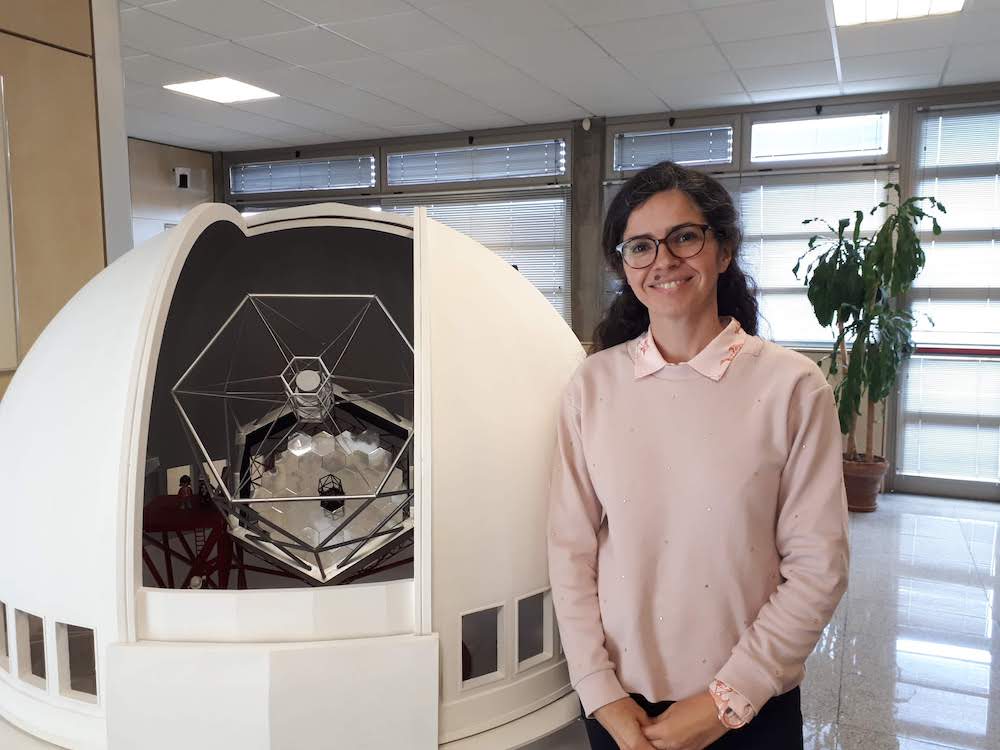
Livia Giacomini (INAF, Italy), Board Member: I remember my first day in a research institute: I was a university student, asking the great Angioletta Coradini about a thesis. She answered that planetary science was the most exciting topic that a young researcher could choose to work on. And, of course, that I needed to be very motivated to become a researcher.
When did you first get involved with Europlanet?
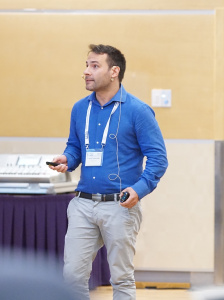
Stavro Ivanovski (INAF-Astronomical Observatory of Trieste, Italy), Vice President: I joined Europlanet in 2017 through the VESPA activity of the Europlanet 2020 Research Infrastructure (RI) project, thanks to the late, much-missed, Maria Teresa Capria. Since 2020, I have acted as the Co-Chair of the Europlanet Science Congress (EPSC) Scientific Organising Committee (SOC). I am serving as the Chair of Italy Regional Hub. Also, whilst chairing the Outreach Working Group in 2020, I was one of the creators of the ‘InspiredByOtherWorlds’ art contest that invites everybody to submit all kinds of artworks inspired by planetary science. Recently, I’ve also led the Machine Learning Work Package within the Europlanet 2024 RI project.
Luca Montabone (Paneureka, France), Board Member: I have memories of initially getting involved with EuroPlaNet (around 2005 or so, when it still stood for ‘European Planetology Network’) when I participated in a meeting in London to discuss a potential future ‘Virtual Research Infrastructure’. Subsequently, I attended several EPSCs, with the most vivid memories stemming from the Europlanet Research Infrastructure Meeting (ERIM) last year (report on page 30).
Ann Carine Vandaele (IASB-BIRA), President: I was part of the Europlanet 2020 RI project, which ran from 2015 to 2019, with a very minor contribution. I am a European at heart: I am convinced of the benefits of working together at the European level and of the wealth of expertise and knowledge that exists in Europe. I was in Berlin when the Europlanet Society was created and it seemed natural to engage with the promotion of the Society.
Edita Stonkutė (Vilnius University, Lithuania), Secretary: I have been the coordinator of the Europlanet Mentorship Programme since 2020, but was also a tutor at Europlanet Summer Schools from 2017.
Melissa: I started to get involved with the Europlanet Early Career (EPEC) Network in 2018, after attending the EPEC Annual Week in Lisbon. After that, I became the Co-Chair of the EPEC communication working group. During that time I tried to help the EPEC Network grow by adding and managing new activities such as the ‘Raise your Profile’ initiative and the #PlanetaryScience4ALL video contest. Currently, I am a Co-Chair of EPEC in general.
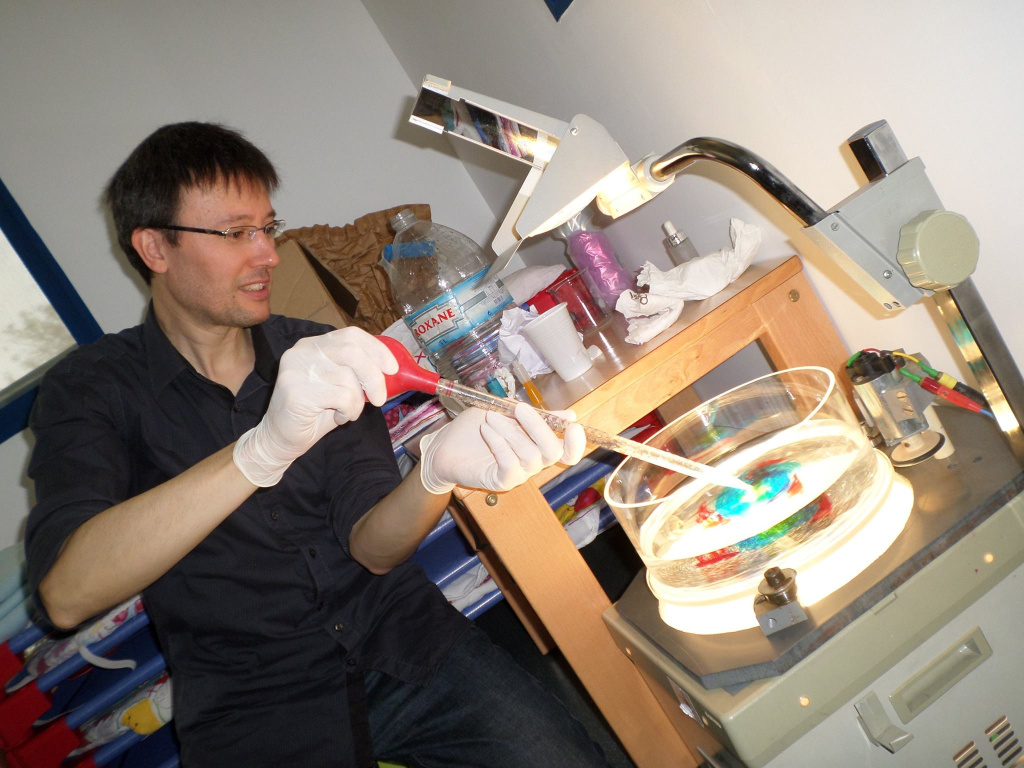
What do you most want to see from the Europlanet Society in the next 12 months?
Ann Carine: I hope we can build a strong structure (association, committees, boards, regional hubs) with active and committed people, and be ready to submit proposals or become partners in future projects.
Federica: I hope to see increased engagement through virtual platforms (existing and new), with enhanced accessibility to online resources that will benefit members and strengthen the Europlanet community.
Julia: I think in the next year we need to consolidate our transition to an international non-profit association and, of course, focus on EPSC 2024, which is one of our major events as a society.
Leigh: I want to see optimisation of activities so that we can do more of what we do best, rather than spread ourselves too thin. The EPSC meetings are my top priority, being the premier networking and collaborative meeting for European planetary scientists. We should ensure these continue to serve our community and widen participation, keeping costs manageable, minimising carbon footprints by selecting accessible locations with good public transport, and improving virtual access for those who may be unable to travel.
Melissa: Since I am representing the early careers, I hope to see more opportunities and doors open for them. I would like to provide them a clearer guide about how to join EPEC as active participants and how to develop leadership skills by taking care of the activities we already have in place. We should never forget that the future of research and exploration is in the hands of early careers and they should also be motivated to pursue a career in planetary science.
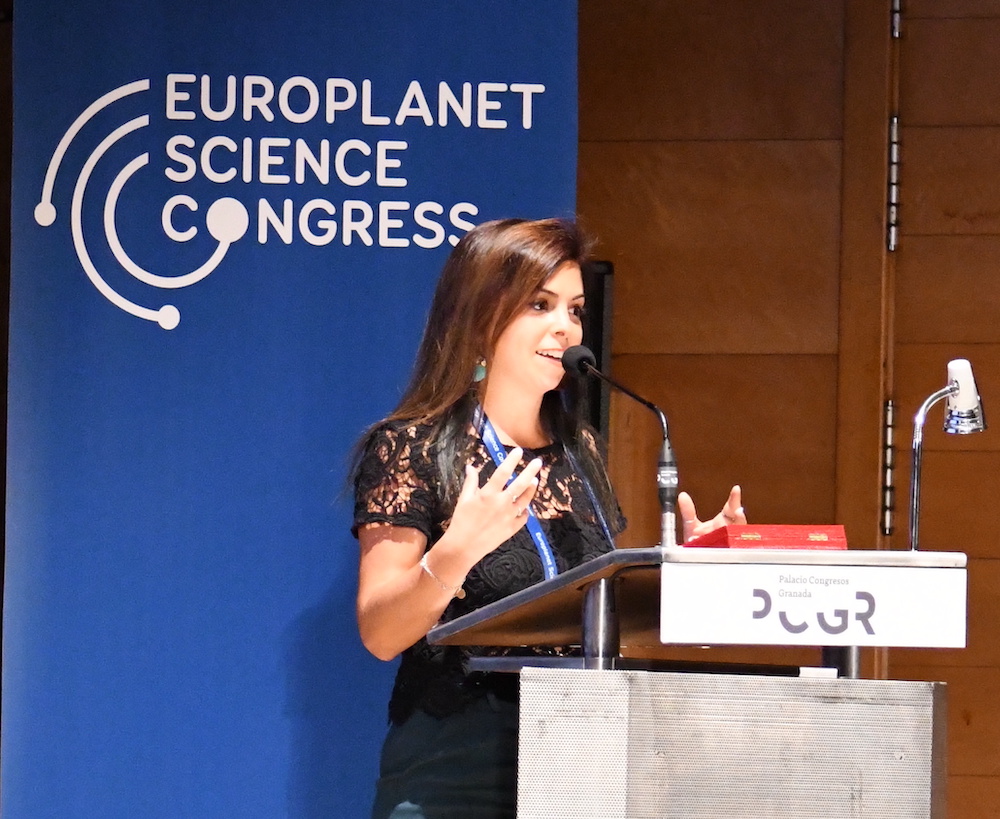
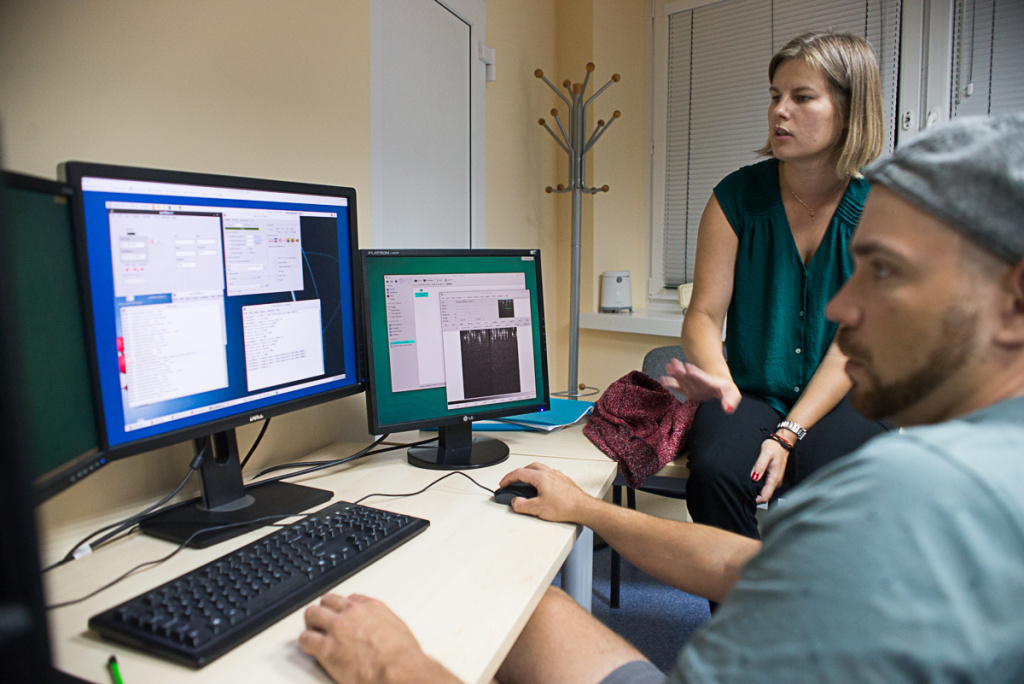
How would you like to see the Europlanet Society develop over the next 5 years?
Edita: I would like to see an even larger, supportive, diverse and inclusive community.
Livia: I would like young students and older researchers to look at Europlanet as the community where they can develop new projects and grow planetary science. I also imagine a Europlanet festival: a very successful week, in which institutes and schools from all around the world organise public events related to the exploration of the Solar System and new worlds.
Luca: I would like to see the Europlanet Society evolve into an entity under which members can initiate pan-European funded projects.
Stavro: I would like to see Europlanet as a growing organisation, with a feasible long-term plan for sustainability, breakthrough research, and early career scientist support. My ambition is to see early careers with scientific discoveries owing to the collaborations within Europlanet, and senior researchers able to stand up for European planetary science and establish new lines of research through Europlanet.
Can you share one thing about yourself that may surprise people?
Ann Carine: I practised karate for many years and enjoyed it immensely. Karate requires you to be focused, to show respect to your Sensei and the other students, and be honest with yourself and others. This state of mind should not be limited to the dojo – your whole life should follow these precepts.
Federica: I had a horse (for the one and only time) when I was 6, called Venus. She was so powerful and free, like Venus the planet. I did not choose the name so it’s a nice coincidence.
Livia: An asteroid has been named after me, with my nickname: 46644 Lagia.
Stavro: I graduated as an actor with theatre experience. This has helped me to have a strong commitment to public engagement and outreach as well.
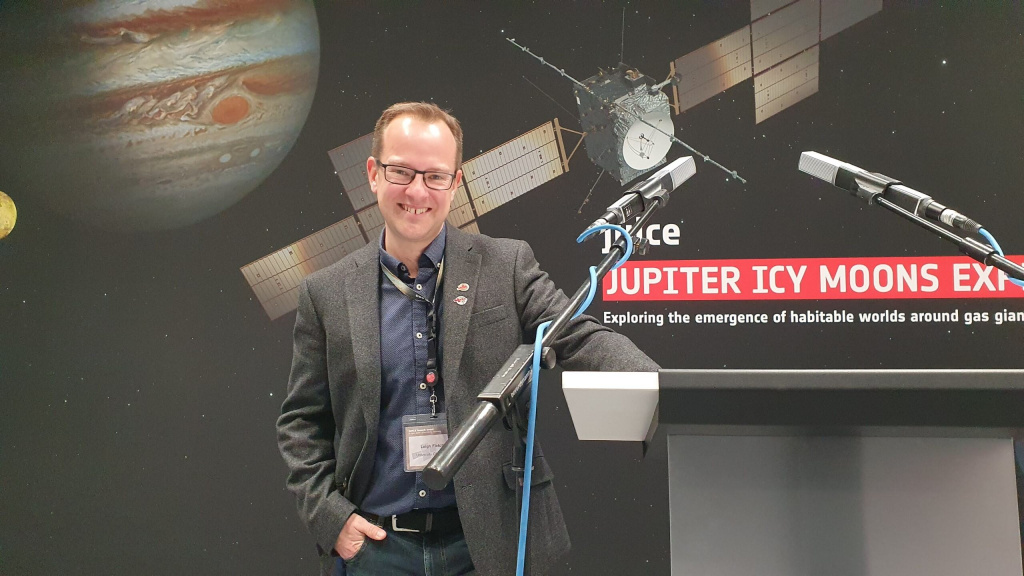
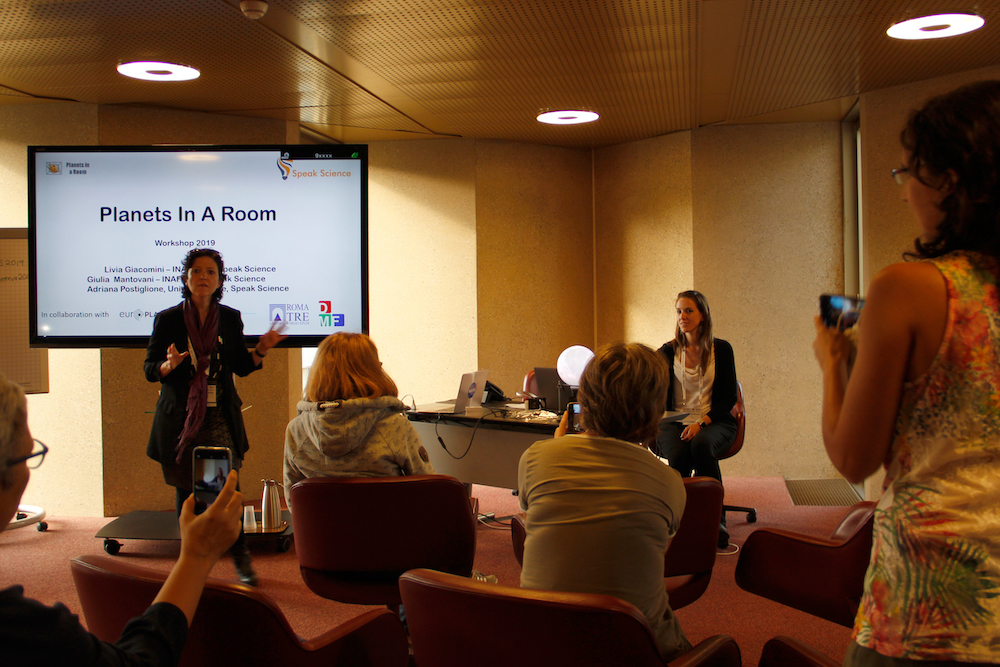
Julia: Not sure if this will surprise people, but I love singing and I was the singer in a band. We used to perform in pubs in my home city, doing mostly covers (blues and rock), and we even recorded an album in a studio.
Find out more about the Board Members in this recorded Europlanet Society webinar:

